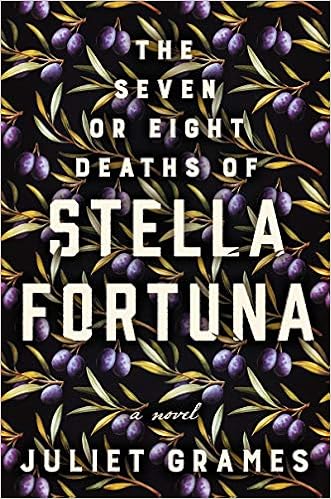This novel focuses on three female members of the Fortuna family, with especial attention to Stella Fortuna. In a small, mountainous village in Calabria, Assunta marries a domineering and abusive man who disappears to America for years at a time, returning only to impregnate his wife. Just as World War II is beginning, Assunta is forced to immigrate to the United States along with her sons and two daughters, Stella and Concettina (Tina).
Assunta’s sad and difficult marriage convinces Stella that she never
wants to marry. Spirited and independent,
she tries to break free from a patriarchal society in which a woman has no value
except as a wife and mother. Of course,
life has other things in store for Stella because she ends up having a large
family. Though she has several brushes
with death, as the title clearly indicates, she lives to be a centenarian. And though Stella and Tina are inseparable
for years, the sisters “spend thirty years locked in a blood feud.” All of this is outlined in the preface; the
novel provides the details.
The unnamed narrator is one of Stella’s granddaughters. Because of a “cerebral haemorrhage and a
lifesaving lobotomy,” Stella spends the last thirty years of her life “demented
and resented” so “all the good she did in this world has already been forgotten
and buried.” Her granddaughter decides
to reconstruct Stella’s “too-strange life” and restore “her besmirched good name.”
It is the character of Stella that steals the show. Though uneducated, she is intelligent. She is skilled and hard-working. “Stella was quick-witted and self-sufficient,
not to be trifled with or taken advantage of.”
She is beautiful and, though not vain, recognizes that her beauty is a power,
“one of the few powers a young woman in a southern Italian village could
possibly wield.” Above all, she is tough: “Each bad thing that happened to her only
made her more stubborn, more retaliatory, less compromising. Stella allowed for no weakness in herself and
she had no tolerance for weakness in others.”
This is not a light read, as indicated in the opening of the novel: Stella “endured much bad luck and hardship.” The narrator, when asking for information
about her grandmother is warned, “’Some parts of the story, they no nice.’” The reader also needs to be warned
beforehand. The book certainly left me
wondering which of my female ancestors were not able to become who they wanted
to be because of society’s expectations of women.
And though the book is very much about the past, it is connected to the
present: “Over the years of human
history, many people have made the choice to get on a boat to go to a strange
and hostile place – can you imagine the desperation they must have felt in
order to step onto that boat knowing there was a chance they would not reach their
destination? Most recently, these people
have been emigrants trying to get into Italy, not emigrants trying to leave,
and their passage is no easier or safer than that of their antecedents. Thousands of refugees from Syria, Libya,
Eritrea, Somalia, Ghana, and Nigeria have died off the coasts of Italy in the
last ten years, capsized, drowned, sunk in flames. History marches on, and names and
destinations change, but not the injustices we let one another suffer.”
This book is recommended to those who enjoy multi-generational family
sagas and/or stories of the immigrant experience.

No comments:
Post a Comment